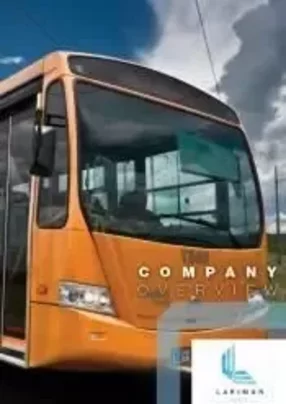Larimar, a family owned business, has been a part of South Africa’s transport history for the past 65 years and is set to play a strong part in its future. Indeed, the family-run business could once boast the largest operations in the Southern Hemisphere with a fleet of close to 4,000 buses; while this number has waned somewhat, the company’s willingness to simultaneously embrace and deliver lasting, meaningful change has only strengthened. In order to maintain its much envied position in South Africa (the group boasts some very lucrative partnership and government contracts) it is simultaneously diversifying its revenue base and working towards making the business comply with global environmental standards.
Operations
Larimar’s group structure enables it to provide a diverse range of solutions to its clients and it is perhaps for this reason that the group is looking to diversify further. It is comprised of six companies which provide transportation (Putco), freight and logistics (Bell Trucking), engineering and manufacturing (Dubigeon Body and Coach, and VOMS Industrial) motor retail (KZN Iveco) and insurance (Larimar Financing and Leasing Services). Across these divisions, the group employs in excess of 5,000 people, all of whom have access to the company’s dedicated talent development initiatives, which will be explored in greater depth later on in this report.
Perhaps the most notable of Larimar’s associations is its contract with the South African government; a deal that saw over 900 brand new buses rolled out between 2005 and 2009; one that will see a further 800 buses deployed in coming years. The successful implementation of “one of the largest fleet expansions in South Africa and the world” according to Group Managing Director Franco Pisapia, that has won the group international renown; it has been very recently awarded a contract by the Kampala Transport Authority to deploy and manage 100 of its buses, a number that will grow eventually grow by a further 600.
Tactical Expansion
Pisapia noted that the company needed to remain dynamic in order to retain its dominant position, he said: “To remain the top transport operator and remain competitive we will have to adjust to the new dispensation of transport in South Africa: diversification will give us the flexibility and will give us the technology and efficiency to stay ahead.” Explaining how it would be done practically, he said: “Across group we are trying to diversify our revenue base; to convert into an industrial group instead of just focusing on the transport side of things.”
The main focus of this diversification project is Putco’s partnership with the global chassis manufacturer Iveco; they share stakes of 40 and 60 percent in an extensive automotive facility respectively. Pisapia noted: “Although set up barely 18 months ago, our facility can produce up to 5,000 trucks and 1,000 buses annually; this makes us by far the biggest producer of buses and trucks in South Africa.” He also highlighted that Putco would be consolidating its stake in the facility with a hefty follow up investment of over 1 billion Rand; the factory alone provides jobs for upwards of 1,000 people. The larger picture has obviously attracted increased focus and capital: Pisapia tentatively noted that the group was considering expanding its capacity even further by offering freight tankers in the next few years.
Larimar is making sure its expansion and consolidation efforts are properly supported with the correct software infrastructure. Aside from building strong links with Microsoft, the group has also rolled out the latest CAT6 Local Area Networking (LAN) systems and has also implemented a dedicated hot disaster recovery site.
Responsible Business
Larimar’s competitive strategy also seeks to ensure that the company extends the efficient practices it has demonstrated though its ISO 9001 accreditation towards becoming environmentally sustainable in compliance with the globally recognised ISO 14001 certification. No small part of this strategy focuses on fighting the case for buses as a sustainable mode of transport. Pisapia noted that Larimar was already taking a major step towards this goal, he said: “We are looking into using low sulphur diesel, switching to 50 parts per million down from 500, which will give our buses lower emissions.” The group is supplementing this initiative by upgrading to Euro 4 and 5 buses.
Pisapia was proud of his company’s track record when it came to supporting its staff, he said: “I strongly believe that we look after our employees very well, so much so that some have been with us for over 40 years.”
Loyalty of this magnitude is not bought but nurtured through encouraging workers to take genuine and conscientious ownership of their and the company’s success. Pisapia explained: “We delisted Putco in 2005, buying out any minority shareholders; we then allocated shares to our own staff. We structured this scheme to comply with South Africa’s Broad-Based Black Economic Empowerment legislation, which has gained us level 3 status.” A share of roughly 23 percent of the company has been divided up between employees in this way.
Furthermore, employees have a clear idea of how they can progress within the company and have access to the group’s dedicated training academy which provides learners with everything from technical instruction and driving refresher courses, to dedicated management training.
Aside from excelling at the delivery of government legislation, Larimar provides a wide variety of programmes to economically disadvantaged people. Each year the Putco foundation invests over 10 million Rand, sponsoring housing projects, mentoring schemes and even paying for the lengthy education of medical students.
Based on its past achievements alone, it would almost be enough to predict that the Larimar Group will retain its dominant position in South Africa; looking at its current strategies, this is looking more like a certainty.

